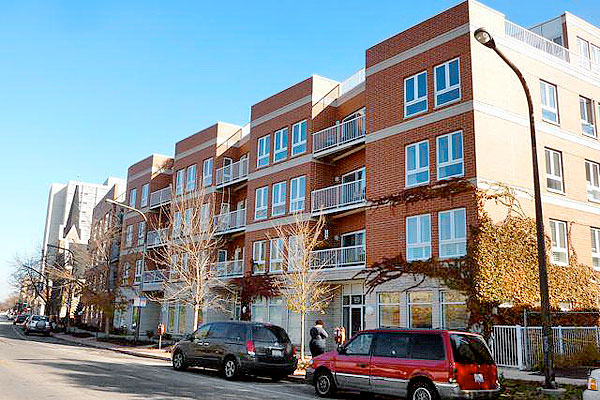
In an era when foreclosures are rampant, Illinois’s 8th District may have tapped a foreclosed homeowner to represent it in Congress. Final votes are still being tallied, but on Tuesday, Joe Walsh, who lost his Evanston condo to foreclosure in October 2009, still had a 350-vote lead over the incumbent, Melissa Bean.
Walsh’s foreclosure first surfaced last spring, when he seemed to be a weak contender against a strong incumbent. But now that Walsh may be headed to Washington, D.C, I’ve been wondering how his foreclosure might affect his stance on House votes related to the housing crisis.
Walsh has declined my requests for an interview, but on Monday, his campaign manager, Nick Provenzano, told me that he believes the foreclosure helped cement voters’ interest in Walsh. “The regular Joes out there—Joe the barber, Joe the painter, Josephine the businesswoman—are experiencing dramatic financial difficulties,” Provenzano said. “They want someone representing them in Congress who has lived through the pain they have. Joe was the right candidate in difficult times.”
Walsh issued a statement last spring in which he said that the foreclosure “helped me gain a better appreciation for the very real economic anxieties felt by 8th District families, many of whom are just a paycheck or two away from facing similar difficulties. Frankly, the perspective I gained from this challenge helped me grow as a person and I believe will make me a better representative of working people’s interests in Washington.”
According to the Cook County Recorder of Deeds, the newly divorced Walsh bought a fourth-floor condo in Evanston for $320,500 in May 2004, with a mortgage of $288,450, or 90 percent of the sale price. In September 2006, he took out a new mortgage, for $303,500, this time with Helene Miller, whom he had recently married and who would later be the treasurer of his Congressional campaign.
In last spring’s statement, Walsh said that he tried to sell the condo from 2006 until 2008. “By 2008 with no buyers in a down real-estate market,” he said, “I found myself struggling to keep up with two homes, and five children. I accepted responsibility for the situation and worked with my bank to foreclose on the condo.” In September 2008, according to the Cook County recorder, HSBC, which held Walsh’s mortgage, issued notification that it was beginning foreclosure. In October 2009, Walsh forfeited the condo’s deed. In March 2010, another buyer bought the condo for $275,000, or 85 percent of what Walsh had paid six years earlier.
Walsh now lives in McHenry—I could not determine whether he owns his home there or rents, as he did in Winnetka after moving from Evanston—an area that is fast becoming familiar with foreclosure. In October, the Woodstock Institute reported that McHenry County and Northwest Cook County—both of which have large sections in the 8th District—were the two parts of the metropolitan area with the biggest surges in new foreclosures in the third quarter of 2010.
If the vote count goes his way, Walsh will not be the first member of Congress to have dealt with foreclosure. But he could be one who, in Provenzano’s words, “relates to the average Joes out there [who are] struggling to keep their homes.”



